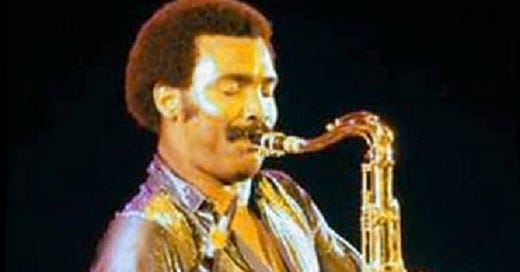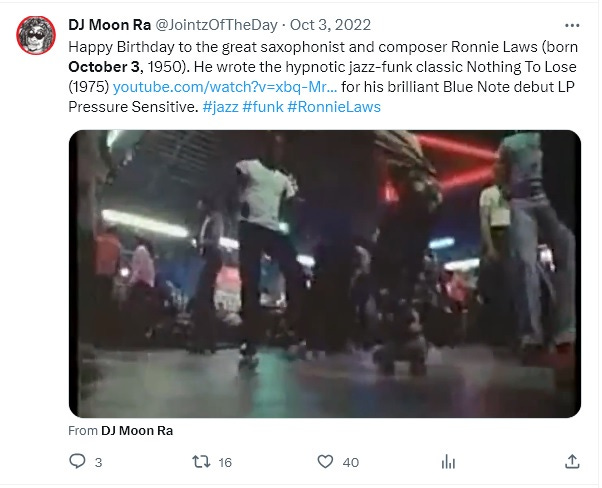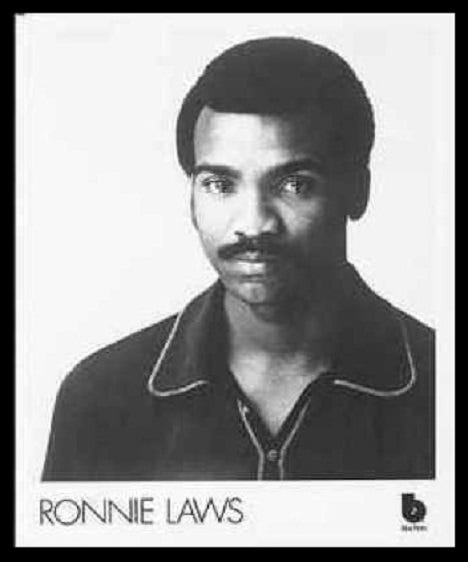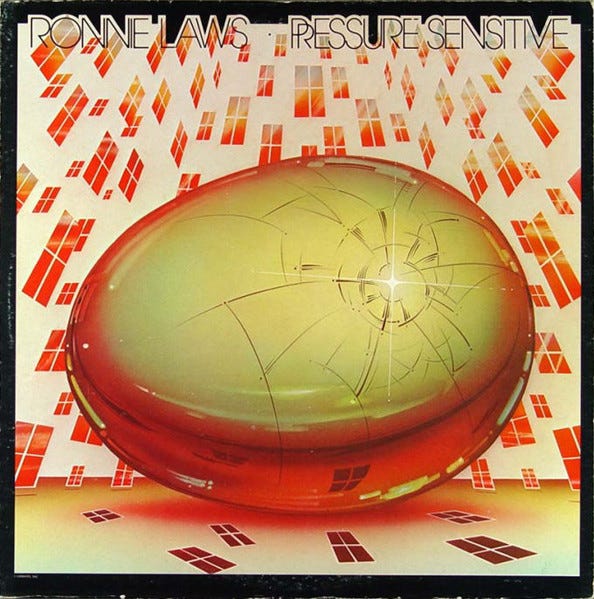Ronnie Laws (born October 3, 1950) – Nothing To Lose (1975)
The prolific saxophonist wrote this epic, hypnotic jazz-funk jam for his brilliant debut LP Pressure Sensitive on Blue Note Records.
Watch full video on Twitter.
View most updated version of this post on Substack.
Ronnie Laws is a saxophonist, flutist, singer and composer, and member of the supremely talented Laws family of musicians, along with his older brother Hubert and sisters Eloise and Debra.
Ronald Wayne Laws was born into a musical family in Houston, the fifth of eight children. His older brother Hubert was an accomplished flutist from an early age. Years later, Ronnie recalled that “My mom was a choir director for the local church choir. There were always rehearsals on weekends particularly the Saturday before the service. You'd be exposed to some of the greatest singers.” Laws was eleven years old when he first learned to play the saxophone.
After moving to Los Angeles in 1971 to pursue a career in the music industry, Laws played with the Jazz Crusaders and the South African trumpeter Hugh Masekela before joining Earth, Wind & Fire in 1972. He played flute and saxophone on their third album Last Days and Time, recorded in April of that year and released in October. After eighteen months with the group, in 1973 he left to go solo, and was replaced by saxophonist Andrew Woolfolk (who sadly died in 2022).
Laws’ debut solo LP was Pressure Sensitive, released in 1975 on Blue Note Records. Co-produced by Blue Note head George Butler and Jazz Crusaders co-founder Wayne Henderson, it was an immediate jazz-funk crossover hit, reaching #25 on the R&B albums chart.
Its funky opening cut “Always There” which he co-wrote with William Jeffrey went to #45 R&B and eventually became one of Laws’ all-time classics. The LP’s masterpiece was arguably the epic, hypnotic jazz-funk jam “Nothing To Lose,” solely written by Laws.
For his second album Fever (1976), produced by Butler, Laws wrote the beautiful jam “Karmen” which was named for his mother. He wrote the laid back, sublime cut “Grace” for his fourth LP Flame, released in 1978.
Two years later, Laws produced his fifth studio album Every Generation (1980), which was his most commercially successful LP ever, rising to #4 on the R&B album charts and #24 on the Billboard 200. Highlights included its lyrically powerful title track, a #12 R&B hit (which was also released in a superb extended UK-only 12” version), and his super funky anthem “O.T.B.A. Law (Outta Be a Law).”
The latter track featured keyboardist Barnaby Finch on Moog synthesizer and a very funky bass line courtesy of bassist Nathaniel Phillips of Pleasure. Other guest stars on the album included Patrice Rushen, keyboardists Joe Sample of the Crusaders and Larry Dunn of Earth, Wind & Fire, and Laws' brother Hubert on flute and saxophone.
In a 2017 interview with All About Jazz promoting his then-current release Settle Down, Laws laid out the philosophy behind some of his newest music:
“All of us are all connected as people in the society we live in. We live in a fast paced society and we are constantly moving about working and so forth. The message is that we should take one day at a time and keep it positive as we go through each day. If a problem arises, there is a solution that we can discover when we settle down and let go of it all. Sometimes the solution is talking to a friend or a family member or even a stranger. We can have a positive effect on each other when we communicate as people in this way. Things will fall in place naturally speaking. It's a good feeling to know this. That is the message behind the music here.”
Happy Birthday to the great Ronnie Laws.
Further info:
“Ronnie Laws follows family tradition but goes his own way,” Pittsburgh Post-Gazette, May 11, 2011.
“Ronnie Laws: Finding His New Groove,” interview by Belinda Ware, All About Jazz, September 14, 2017.
#jazz #funk #RonnieLaws








Great read.👍🏾🎼👊🏾